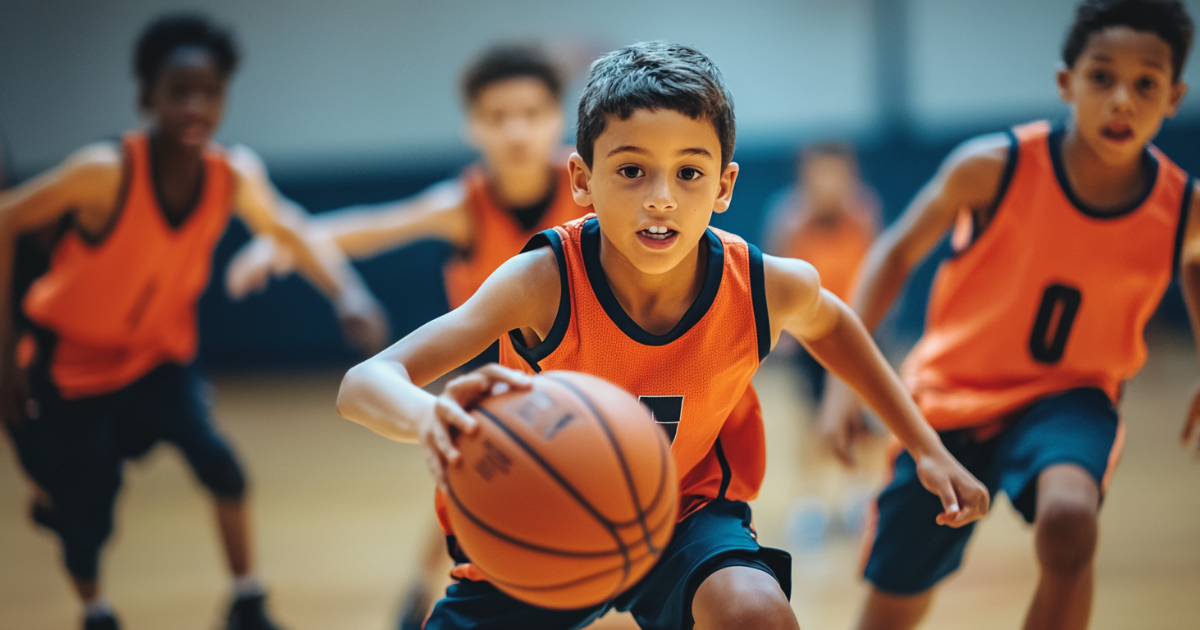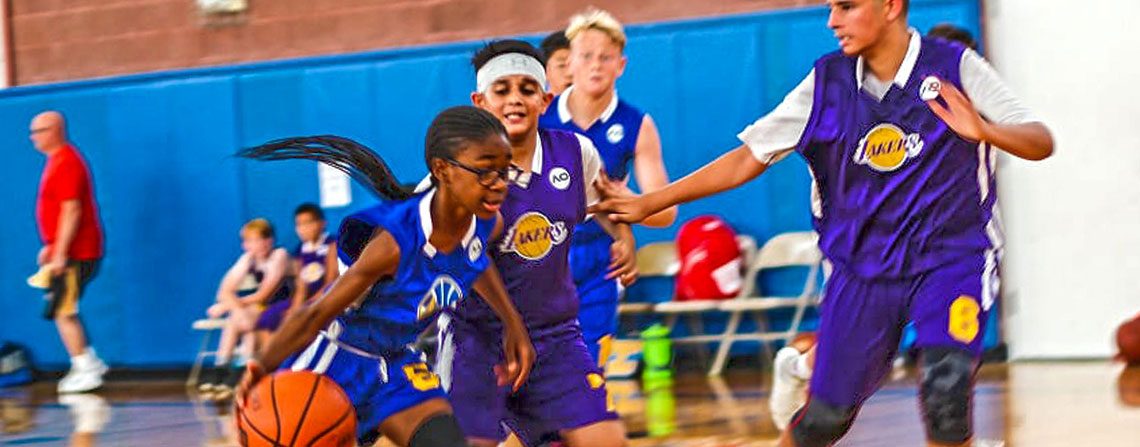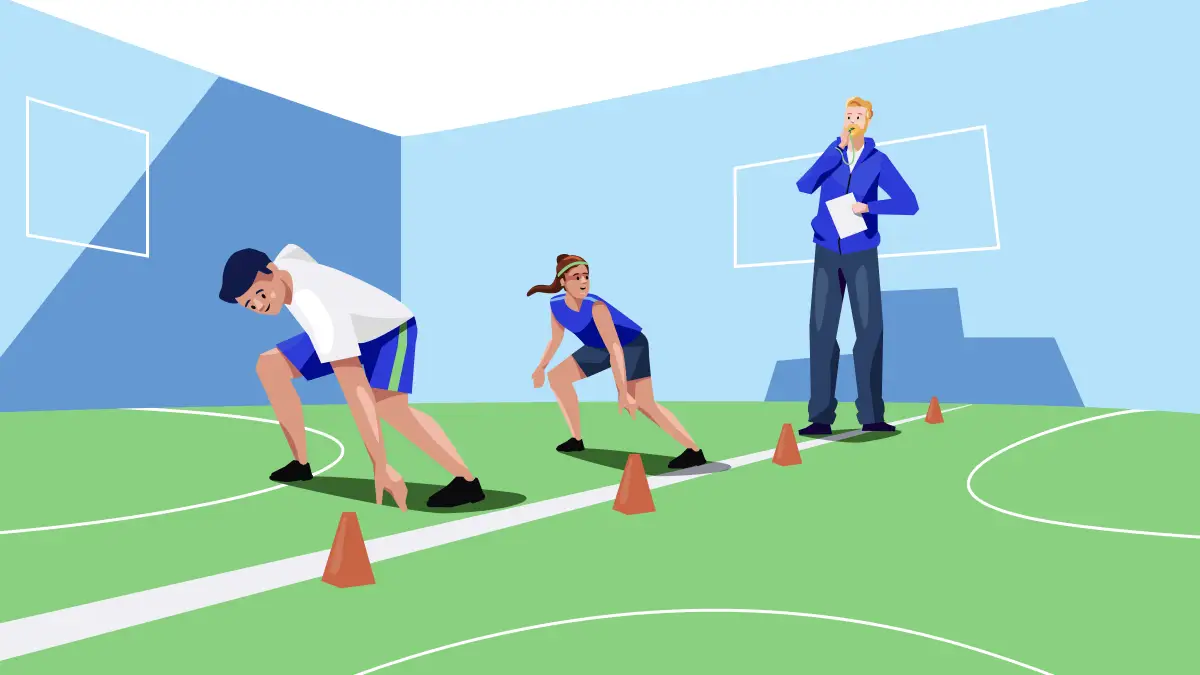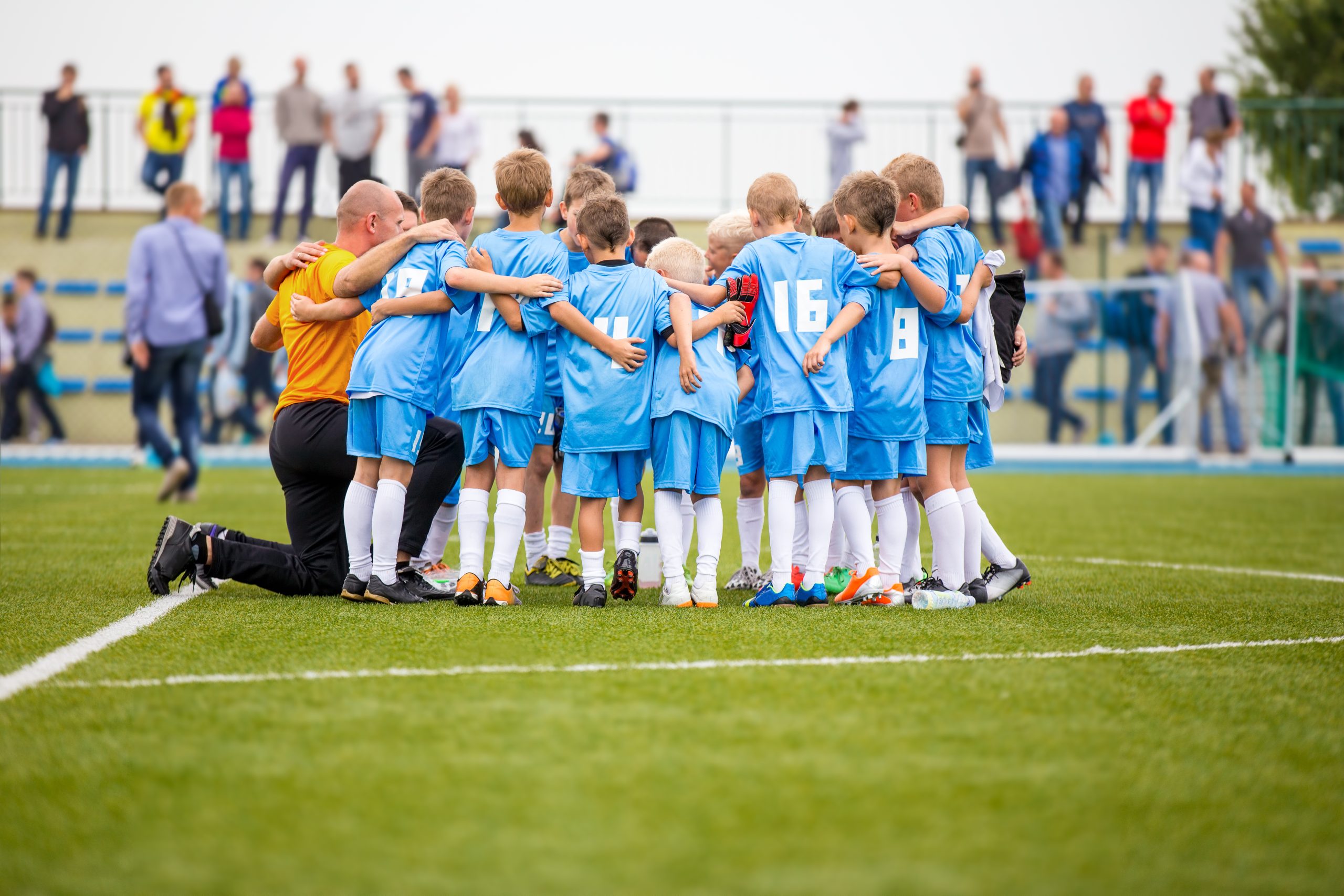When I first attended a game featuring the Ambush 14U Fauley team, I was struck by their dynamics on the court. Yet, it’s not just about the game; there’s a deeper story behind every dribble and dunk that embodies teamwork, resilience, and passion for the sport. This guide will navigate you through the essentials of supporting and understanding youth basketball, focusing particularly on the Ambush 14U Fauley. Whether you’re a curious parent or a budding coach, there’s something here for everyone.
The Ambush 14U Fauley Team Overview
Introduction to the Team
The Ambush 14U Fauley team isn’t just a collection of young athletes. It’s a true community. Here, players grow, learn, and bond over their love for the game. Formed in 2015, the team set out to empower youth through sport, fostering both talent and character. When you join this group, you become part of something bigger than just playing baseball.
A Brief History of the Ambush Program
Since its inception in 2015, the Ambush program has experienced impressive growth. Starting as a small initiative, it has expanded into a respected team within many leagues. Over the years, many remarkable players have walked through its doors, leaving their mark. But what’s the secret to this evolution?
- 2015: Founding Year
- 20 Tournaments: Participation across various age groups
- 3 Regional Championships: A testament to excellence in competition
Goals and Mission
The team’s mission revolves around developing skills and instilling values. Players learn the importance of teamwork, dedication, and respect for others. As Coach John Smith puts it:
“Each game is a lesson in teamwork for these young athletes.”
This philosophy not only makes better players but also better people.
Key Player Profiles
Within the Ambush team, some standout players shine brightly. For instance, consider Jamie, a powerful pitcher whose talent has turned heads in many tournaments. Then there’s Ryan, known for his incredible batting skills. These players represent the heart and drive of the team. They aren’t just talented; they inspire others too.
Every player is important, but it’s these key individuals who often elevate the game. Their hard work sets a standard for everyone.
Coaching Staff Insights
The coaching staff at Ambush is dedicated and passionate. They focus on developing players as individuals. Insights from the coaches reveal a consistent approach: teaching the game while emphasizing fun and learning.
For the coaches, it’s about more than just winning. It’s about giving young athletes the tools they need to thrive both on and off the field.
Recent Achievements and Highlights
The Ambush 14U Fauley team has had a standout season. With three regional championships under their belt, they’ve demonstrated their commitment to excellence. Participating in 20 tournaments since the program began further showcases their drive.
What has made this possible? A combination of talent, teamwork, and a love for the game. Their recent achievements serve as both milestones and motivation for future successes.
Summary of Accomplishments
| Year | Achievements |
| 2015 | Founded |
| 2015-2023 | 3 Regional Championships |
| 2015-2023 | 20 Tournaments Participated |
In closing, the Ambush 14U Fauley team is much more than just a sports team. It’s a supportive environment where young athletes grow and thrive. Each season unfolds more stories of dedication, teamwork, and learning. So, whether you’re a player, a parent, or a fan, engaging with this team means being part of a journey rooted in passion and purpose.
Basketball Training Techniques for Young Athletes

When it comes to coaching young athletes, the importance of skill development can’t be overstated. Skill development lays the groundwork for their future in basketball. Are you giving your young players the tools they need to succeed on the court? Proper training can make a world of difference in how they play the game. Here are some key areas you should focus on:
1. Drills and Exercises for Young Players
Drills are essential to skill acquisition. They help athletes improve specific aspects of their game. Here are five fundamental shooting drills that every young player should practice:
- Form Shooting: Focus on shooting technique.
- Spot Shooting: Shoot from various designated spots.
- Free Throws: Practice consistent free throw shooting under pressure.
- Catch and Shoot: Improve quick shooting off a pass.
- Shooting off the Dribble: Develop skills to shoot after dribbling.
This table outlines some additional data regarding these drills:
| Drills | Average Training Duration |
| 5 fundamental shooting drills | 2 hours per week |
2. Incorporating Physical Conditioning
Don’t forget that physical conditioning is just as important as skill development. Young players need endurance to perform well in games. Conditioning drills not only help build stamina but also improve overall performance. Have you considered integrating these components into your training sessions?
3. Mental Preparation and Focus
The mental aspect of basketball is often overlooked. Young athletes need to develop mental toughness and focus. Encourage players to visualize success and practice mindfulness techniques. This can lead to improved performance in high-pressure situations. Just like Anna Davis said,
“Training is the foundation for confidence on the court.”
Confidence comes not only from physical training but also from mental preparedness.
4. Creative Ways to Engage Players
Let’s not forget about keeping the training environment fun and engaging. Use games to teach skills. Incorporating varying types of exercises will help sustain player interest. Have you tried setting up competitions during practice? This can ignite a sense of team spirit and motivation.
5. Feedback and Improvement Mechanisms
Providing regular feedback allows for continuous improvement. Young athletes thrive on constructive criticism. Instead of just pointing out flaws, highlight what they did well too. This balanced approach helps build confidence and a growth mindset. Consider using video analysis to showcase mechanics, or sit down for regular one-on-one reviews to discuss their progress.
6. The Path Forward
In the world of youth basketball, establishing a solid foundation is key. Use the drills and techniques discussed to enhance player skills. Focus equally on physical conditioning and mental preparedness. By employing creative training methods and providing constructive feedback, you’re not just teaching the game; you’re fostering a love for basketball that can last a lifetime.
Are you ready to take the next steps in helping your players? Remember, it’s all about building their confidence and allowing them to love the game. After all, skill development is more than just training—it’s about creating passionate players.
Strategies for Team Success on the Court

Building a successful basketball team isn’t just about having the best players. It’s more than just talent. It’s a blend of strategy, communication, and teamwork. So, how do you create a winning team? Let’s break it down.
1. Effective Communication Among Players
Communication is the backbone of any successful team. You need to share information quickly and effectively. Often, hand signals can make all the difference during a game. Imagine a player driving to the basket. A quick signal from a teammate can set up a perfect pick. This silent language allows teams to execute plays without tipping off the opponents.
How often have you seen teams succeed or fail because they simply couldn’t talk on the court? Remember, feedback is essential. Whether it’s a clever play or a mistake, a few words can help your teammate improve and stay focused.
2. Game Strategies: Offense and Defense
Having a solid game strategy can be crucial. Think of it like a chess match. Each player has a role to fulfill. You need to understand both offensive and defensive plays. For example, if your team excels in speed, your offensive play might involve quick passes and drives to the basket. That’s the beauty of tailoring your strategy to your strengths.
- Offensive Strategies: Fast breaks, pick and rolls, isolation plays.
- Defensive Strategies: Man-to-man coverage, zone defense, full-court press.
3. Importance of Adaptability During Games
How adaptable is your team? Adaptability is critical during a game. Opponents will change their strategies to counter yours. So, what do you do? Adjust! Your team should be willing to modify plays based on the situation. Consider this: teams that employ adaptive strategies win 75% of their games. That’s a number you can’t ignore!
4. Incorporating Statistics into Strategy
Don’t overlook the value of data in basketball. Statistics can provide insights into your game. Understanding your shooting percentage, assists, and turnovers can guide your strategy. For example, if a player consistently hits three-point shots, they should take more of them.
5. Building Team Chemistry
Team chemistry is often underrated. Have you ever noticed how well some teams gel, despite not having star players? That’s chemistry. Trust and cooperation on and off the court lead to effective teamwork. Schedule team-building activities outside of practice. The deeper the bonds, the more effective your communication and execution on the court becomes.
6. Post-Game Analysis and Adjustments
Winning or losing is part of the game. However, what matters most is how you learn from it. After each game, sit down for a post-game analysis. Discuss what worked and what didn’t. This isn’t about blaming anyone but rather finding solutions to improve. You’ll see growth from understanding your gameplay better.
“A team that communicates well plays well together.” – Coach Lisa Johnson
7. Wrap Up
The journey to becoming a cohesive team on the basketball court involves effective communication, strategic play, and continuous improvement. By incorporating these elements into your practice routines, you will foster a culture of success. Remember, engaging with each other strengthens your abilities as a team. Are you ready to adopt these strategies?
Start now. Your success can be built on these foundational aspects. No more hoping for the best. It’s time to implement the right strategies and see the results!
Fostering Good Sportsmanship and Team Culture

In the realm of youth sports, creating an atmosphere of good sportsmanship is essential. It doesn’t just elevate the game; it molds players into respectful individuals. Let’s explore the foundations of good sportsmanship and team culture.
1. Defining Good Sportsmanship
So, what exactly is good sportsmanship? It’s more than just being polite. It encompasses fairness, respect, and graciousness in both victory and defeat. It means playing within the rules and exhibiting integrity on and off the court. Essentially, good sportsmanship is about being a good person first and foremost.
2. Encouraging Respect Among Players
Encouraging respect among players is vital. A culture where players support one another can lead to incredible teamwork. Some ways to promote this are:
- Setting clear expectations for behavior.
- Fostering open lines of communication.
- Recognizing and rewarding respectful behaviors.
By focusing on respect, you are creating an environment where every player feels valued. Remember, respect is a two-way street.
3. Dealing with Wins and Losses Gracefully
Every player must learn how to handle victories and defeats gracefully. When you win, celebrate but acknowledge your opponents. When you lose, it’s time to show good character. Perhaps you can ask yourself, “What did I learn from this?” It’s those moments that truly shape character. An impressive 85% of players report improved sportsmanship when they understand this concept.
4. The Role of Parents and Coaches
Parents and coaches play a significant role in shaping sportsmanship. Parental involvement can lead to a more positive culture. Did you know that 100% of parents engaged in positive initiatives boost a team’s morale? Think about how quickly a coach’s words can uplift or deflate a team. Coaches should model sportsmanship. Their actions speak louder than their words. When they exemplify respect and fairness, players are more likely to follow suit.
5. Building a Positive Team Culture
Building a positive team culture involves collective effort. Here are some strategies to consider:
- Establish team rituals that emphasize teamwork.
- Encourage players to support one another, both on and off the court.
- Host team-building activities to strengthen relationships.
A cohesive team is a productive team. Focus on creating bonds that go beyond just basketball. Remember that those friendships often last a lifetime.
6. Celebrating Achievements Outside Basketball
Finally, it’s crucial to celebrate achievements outside basketball. Recognizing academic success or personal milestones shows that you value the whole player, not just their athletic abilities. Celebrations could include:
- Player spotlights at a team meeting.
- Community service projects.
- Team outings for accomplishments beyond the court.
Such recognition enhances a player’s self-esteem and encourages a well-rounded approach to life.
As the saying goes,
“Sportsmanship is about character, both on and off the court.” – David Brown
Cultivating good sportsmanship and a positive team culture is a continuous journey. It shapes the young athletes of today into the respected leaders of tomorrow.
Challenges in Youth Sports and Overcoming Them

Common Challenges Faced by Youth Athletes
Youth athletes encounter a multitude of challenges. Many struggle with the pressure to perform. Have you ever felt that weight on your shoulders? A staggering 65% of young athletes report feeling this pressure. The expectations grow as sports competition intensifies. This can lead to anxiety and burnout, making it hard for kids to enjoy their games.
Importance of Mental Health Awareness
When we talk about sports, it’s crucial to consider mental health. Often, mental well-being gets overshadowed by physical performance. You might ask: how can we improve this? Awareness is key. Educating athletes about the importance of mental health can lead to healthier competition dynamics.
- Encourage open dialogues about feelings.
- Provide resources for mental health support.
Remember, a mentally healthy athlete performs significantly better. Just like Coach Sarah Lee said,
“Challenges are just stepping stones to greater achievements.”
Overcoming mental hurdles can build resilience.
Finding Balance Between Competition and Enjoyment
Striking a balance between competition and enjoyment is vital. Sports should be fun — that’s a given. Yet, the competitive edge sometimes overshadows the joy. Are young athletes getting the most out of their experience? Make sure they enjoy what they do. Encourage them to appreciate the game, the challenges, and the camaraderie it fosters.
How can you help? Promote a growth mindset. Celebrate progress, not just wins.
Navigating Parental Expectations
Parental involvement is a double-edged sword. On the one hand, support can be invaluable. On the other, parental pressure can crush a child’s passion. Parents should remember that their child’s happiness is paramount. Is your aspiration for their success overshadowing their desire to play? Communication is key here. Open discussions can reduce misunderstandings.
Team Resources and Support Systems
No one has to go through these challenges alone. Teams can be a stronghold. Having a supportive environment where players can share their thoughts is important. Here are ways teams can help:
- Build mentorship programs between older and younger players.
- Offer workshops on mental health and coping strategies.
- Encourage team bonding activities that shift the focus from competition.
By promoting teamwork and support, athletes build lasting rapport and resilience.
Real-Life Stories of Overcoming Challenges
Nothing inspires like a true success story. The Ambush 14U Fauley team faced immense pressure last season. Players were feeling it hard. However, they leaned on each other and local resources. Through collective effort and support systems, they turned their season around. It taught them not only about sports but also about life — the power of teamwork. Remember, the real victory lies in overcoming obstacles together.
As parents, coaches, and athletes, let’s remember that the experiences gained from sports are bigger than game scores. It’s about growth, resilience, and understanding. Support your young athletes and ensure they have a fulfilling experience. They aren’t just playing for trophies; they are playing to learn, grow, and enjoy their craft.
Conclusion: The Bigger Picture of Youth Sports

When you think about youth sports, what comes to mind? The excitement of a game, the thrill of scoring a goal, or perhaps the friendships formed along the way? Youth sports extend far beyond just competition; they play a vital role in shaping character and creating lasting memories.
The Impact on Character Development
Youth sports serve as a foundation for character development. Kids learn essential life skills like teamwork, discipline, and perseverance. Think about it. When a young athlete practices with their team, they develop resilience. They learn to take responsibility for their actions, whether winning or losing. This experience translates into their everyday lives, enhancing their ability to face challenges head-on.
“Youth sports can shape individuals into remarkable adults.” – Coach Emily Carter
Creating Lifelong Memories
Every player has stories to tell. Some involve the thrill of a last-minute victory. Others focus on the lessons learned from defeat. These memories are not just fleeting moments; they’re treasures that stay with young athletes for years to come. Whether it’s that game-winning shot or the time spent laughing with teammates during practice, every experience contributes to a rich tapestry of youth.
Will your child remember a game more than a day at home? Probably. Sports have that magic. They create bonds that last a lifetime.
Encouraging Community and Friendships
One of the best parts of youth sports is the sense of community it fosters. Players, coaches, and families come together to support one another. When your child runs onto the field, they’re surrounded by friends, both new and old. This environment encourages social interactions and builds strong networks—those bonds go beyond the game, offering a sense of belonging. How many friendships have started on the field? Countless, I bet.
Future Ambitions for the Ambush 14U Fauley
Now, shifting gears a bit, let’s talk about the future of the Ambush 14U Fauley. It isn’t just about winning tournaments or trophies. The team aims to instill values that go beyond sportsmanship. The goal is to develop mature and responsible young adults who can conquer challenges both in their sport and in life. What a powerful vision! The foundation laid today can set these players on a path to success.
The Role of Youth Sports in Education
Did you know that youth sports participation can lead to a 20% increase in academic performance? That’s right! Engaging in sports doesn’t just boost physical health but enhances cognitive abilities too. Schools often recognize this connection and support student-athletes in balancing their academics and sports. This relationship between sports and education is crucial. It fosters a culture where hard work translates into success, whether on the field or in the classroom.
Final Thoughts and Encouragement for Players
So, what’s the takeaway? Youth sports are not just a fun activity. They build character, forge friendships, and create dreams. Each player should seize the opportunity. These experiences contribute to personal growth and community connection. Whether you’re cheering from the sidelines or playing in the game, your involvement counts.
Remember, the journey in youth sports is precious. Embrace it. Cherish those moments, and keep pushing forward. You never know how these experiences will shape you into an extraordinary adult. Keep playing, keep growing!
FAQs: Your Questions About Ambush 14U Fauley
Are you curious about what life is like with the Ambush 14U Fauley team? Whether you’re a parent, player, or coach, you probably have a lot of questions. Here, we’ll tackle some of the most common queries and provide valuable insights into the team’s dynamics.
1. What Should Parents Expect from Games?
As a parent, attending games is a big part of your support system. You can expect a lively atmosphere, with players giving their best on the field. Here’s what you should look out for:
- Excitement: Each game is an opportunity for the players to showcase their skills.
- Team Spirit: Watch how the team supports each other, both on and off the field.
- Growth: Each game is a learning experience. Players develop not just skills, but also resilience.
Sometimes, things may not go as planned. Be prepared for ups and downs, just like any sport!
2. How Can Players Improve Their Skills?
Improvement takes time and effort. Here are some simple yet effective ways players can enhance their skills:
- Practice Regularly: Consistency is key. Attend all practices and put in extra time if possible.
- Seek Feedback: Players should ask coaches for advice on areas to improve. Constructive criticism is vital.
- Watch and Learn: Observe experienced players during games. What do they do differently?
3. What is the Team’s Practice Schedule?
The practice schedule is designed to help players balance training and games. Typically, the team practices on:
- Tuesdays and Thursdays: Evening practices focus on drills and teamwork.
- Game Days: These vary, so stay updated on the team calendar.
Always encourage your athletes to communicate if they have scheduling conflicts. It’s essential to maintain balance.
4. How Do Coaches Communicate with Parents?
Effective communication between coaches and parents is crucial for team harmony. Coaches typically use various methods to keep you informed:
- Email Updates: Regular newsletters provide game recaps and upcoming schedules.
- Meetings: Expect informal meetings during practices to discuss progress and concerns.
- Communication Apps: Some teams use platforms like TeamSnap to share real-time updates.
5. What Tournaments Does the Team Participate In?
Participation in tournaments is a significant part of competitive play. The Ambush 14U Fauley generally competes in various state and regional tournaments. This helps players gain valuable experience. It’s also a great way for families to bond.
6. How to Support Young Athletes in Their Journey?
Supporting young athletes takes heart and understanding. Here are some tips for parents:
- Be Present: Attend games and practices. Your presence means a lot!
- Encourage Positivity: Help maintain a positive attitude, regardless of wins or losses.
- Promote Balance: Ensure they are not overwhelmed with pressures; school comes first!
As Coach Mark Thompson wisely said,
“Understanding the game is just as important as playing it.”
This perspective helps everyone, including parents, see the bigger picture.
Answering frequently asked questions can demystify the process and provide clarity about involvement in the team. It encourages a supportive environment for young athletes to thrive.

